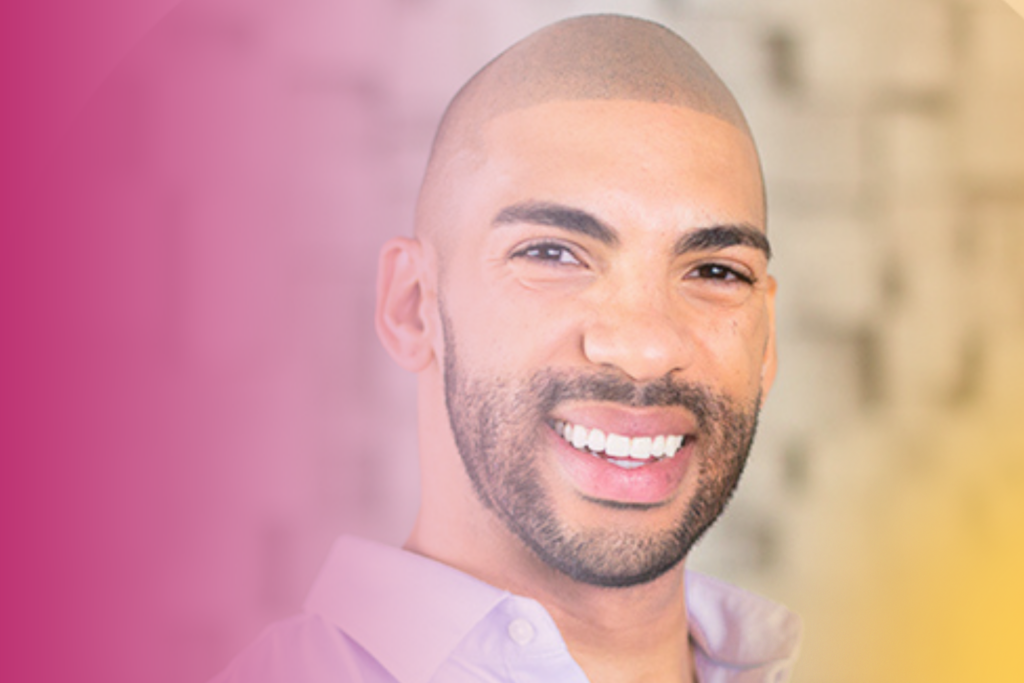At RHO, our instructors collaborate with experienced facilitators to deliver courses on 2SLGBTQ health. One of our long-time collaborators is Dr. Jordan Goodridge, a Toronto-based physician, educator and leading expert in 2SLGBTQ health. Offering an opportunity for our learners to hear from peers like Jordan brings a uniquely helpful perspective that combines specialized knowledge with a deep understanding of realities in the field as a practicing physician.
Jordan shares his highlights of working in 2SLGBTQ health education, as well as his appreciation for supporting colleagues, and how taking one course can lead to developing valuable networks of peer support.

What kind of work do you do with RHO?
I play a multifaceted role focused on advancing gender-affirming care. I facilitate courses, including Transition-related Hormone Therapy in Primary Health Care, Transition-related Surgeries: Planning, Referral, and Care, and Masculinizing Surgeries: Post-Operative Complications in Primary Health Care. These courses aim to equip healthcare providers with the essential knowledge and skills needed to support trans and gender-diverse patients effectively. Additionally, I serve as a mentor in the Trans Health Mentorship Call, a complimentary resource where health care practitioners can seek guidance and ask questions on complex cases or topics in gender-affirming care. I also appeared on RHO’s podcast episode 2SLGBTQ Medical Education.
I also regularly review and update resources used by both providers in health and social services and by trans and gender-diverse individuals, ensuring these materials remain relevant, inclusive, and up-to-date.
How does your expertise inform how you teach learners?
Teaching in the field of gender-affirming care involves a blend of evolving research and hands-on clinical experience. Though research is expanding, gender-affirming care remains a growing field where much of the practice relies on expert opinion and accumulated clinical experience. Over the years, I have had the privilege of working at Sherbourne Health alongside some of the leading experts in this area, gaining invaluable mentorship. This experience, combined with insights from the diverse patients I serve, has enabled me to respond to community-specific needs and to guide learners with a depth of understanding and empathy. My background allows me to provide learners with both foundational knowledge and nuanced, experience-based guidance, helping them navigate the complexities of gender-affirming care.
What benefits do you see for health care providers who choose to take a course with you?
Health care providers who take courses with RHO gain increased confidence in their ability to care for trans and gender-diverse clients. The learning environment provides a supportive, open space to ask questions and discuss cases with peers. Additionally, these courses help to build a community of practice, where connections often develop among care providers who work in proximity to one another or who may be able to guide and support one another in a myriad of ways. I encourage these connections and let learners know they can continue to reach out to me for guidance. This ongoing network of support helps reinforce their confidence and commitment to gender-affirming care long after the course ends.
What aspects of your role at RHO do you find rewarding?
One of the most rewarding aspects of my work at RHO is the opportunity to teach health care providers across the province about gender-affirming care. The providers who attend these sessions are dedicated professionals who recognize the importance of building their skills to better serve their communities. Personally, gender-affirming care is the most fulfilling area of my clinical work. I am privileged to accompany clients on their journeys, witnessing the profound, positive changes as they achieve alignment with their gender identity and embodiment goals. It’s inspiring to consider the ripple effect of my work as these providers return to their often underserved communities and make a real impact by delivering compassionate, informed gender-affirming care.
